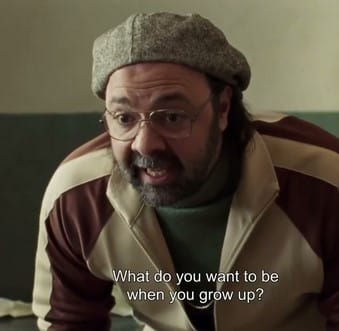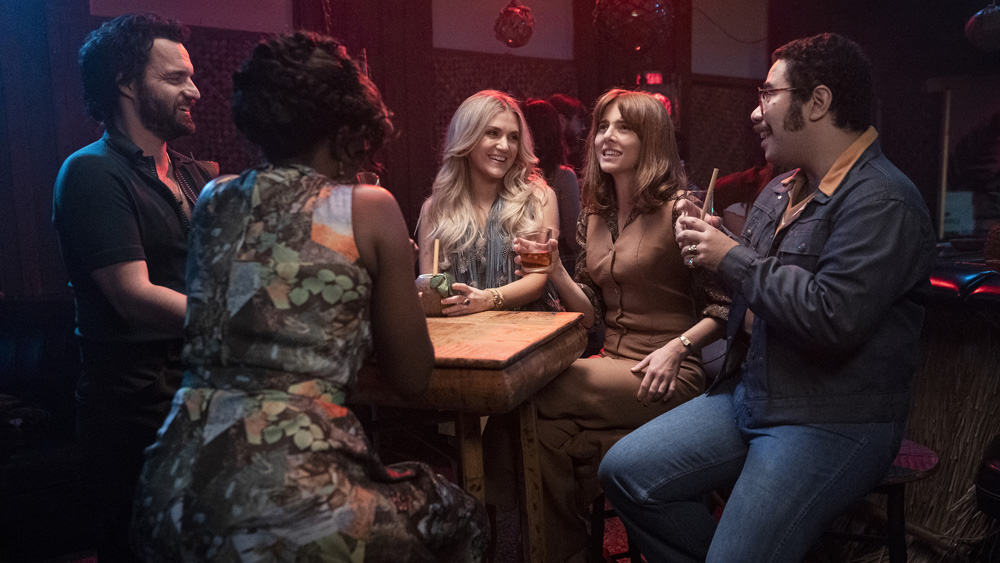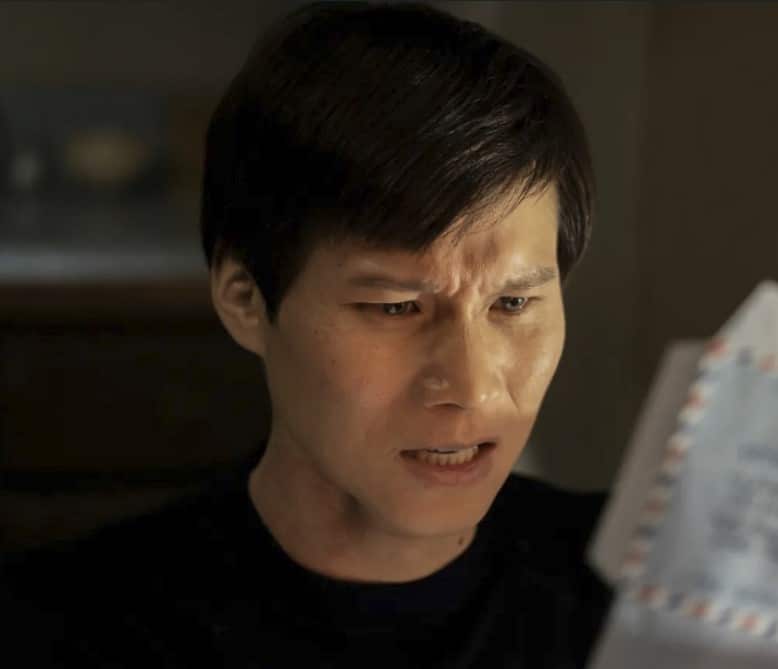From Clark Gable and Claudette Colbert bantering in It Happened One Night to John Cusack blasting music out of a boombox in Say Anything, Love romantic comedies are a staple of American cinema. They are undeniably cheesy, but with the right amount of comedy, charm, and poignancy, they can also serve as an ideal escape.
While some of the most famous rom-coms are American, the genre has become popular all around the world. Certain tropes repeatedly appear, but since are so reflective of the culture they are set in, these international films offer an intriguing insight into different cultures. With Valentine’s Day on the horizon, there’s no better time to check out some international rom-coms and share in the love globally.
My Sassy Girl/Yeopgijeogin Geunyeo (South Korea)
 By far one of the most famous entries on this list, My Sassy Girl is one of the highest-grossing films in South Korea of all time. Since its release in 2001, there has been an American remake, a Japanese drama, a sequel, and a television adaptation. The film is known for helping to spark the Korean Wave, spreading Korean pop culture to the rest of eastern Asia and the west.
By far one of the most famous entries on this list, My Sassy Girl is one of the highest-grossing films in South Korea of all time. Since its release in 2001, there has been an American remake, a Japanese drama, a sequel, and a television adaptation. The film is known for helping to spark the Korean Wave, spreading Korean pop culture to the rest of eastern Asia and the west.
My Sassy Girl is loosely based on a series of blog posts that were later turned into a novel. The film is essentially a series of vignettes about Gyeon-Woo (Cha Tae-Hyun)’s relationship with “the girl” (Jun Chi-Hyun). Gyeon-Woo is a mild-mannered engineering student who first meets the girl on a subway platform. Despite her being drunk and vile, Woo is intrigued, and they begin a relationship (if one can call it that). The girl plays rough with Woo (the physical comedy of this is funnier than it sounds), but he remains smitten. While My Sassy Girl is similar to many North American rom-coms—it’s heartwarming and will make you cry—it follows an unusual structure and has a twist ending that reveals much more about its two leads. Korean dramas are known for their melodramatic stories, and while My Sassy Girl delivers, it’s also an original take on love.
Where to find it: Google Play, YouTube
Watch it with: That friend you’re always arguing with (but secretly like).
Caramel/Sekkar Banat (Lebanon)
 The Lebanese film Caramel is the antidote to Sex and the City 2‘s infamous Islamaphobic poison. The story follows five women who are connected to each other through a salon in Beirut. Each one is dealing with her own problems: Layale (Nadine Labaki, who also wrote and directed the film) is having an affair with a married man; Nisrine (Yasmine Al Masri) is a Muslim who undergoes a medical procedure in an attempt to hide her non-virginity before her impending marriage; Rima (Joanna Moukarzel) is uncomfortable with her homosexuality, a no-no in her country; Jamale (Gisele Aouad) is an aging small-time actress who overly relies on plastic surgery to hide her age; and Rose (Siham Haddad) has placed her life on hold to take care of her elderly sister Lili (Aziza Semaan). As the women confront their various struggles, a love triangle emerges and a charming romance between Rose and a man whose suit she is tailoring blossoms. The film offers necessary insight into Middle Eastern culture and shows a version of Beirut that is not war torn. The friendships are the best part of the film, and while this may be more of a “chick flick,” it’s still a story about love.
The Lebanese film Caramel is the antidote to Sex and the City 2‘s infamous Islamaphobic poison. The story follows five women who are connected to each other through a salon in Beirut. Each one is dealing with her own problems: Layale (Nadine Labaki, who also wrote and directed the film) is having an affair with a married man; Nisrine (Yasmine Al Masri) is a Muslim who undergoes a medical procedure in an attempt to hide her non-virginity before her impending marriage; Rima (Joanna Moukarzel) is uncomfortable with her homosexuality, a no-no in her country; Jamale (Gisele Aouad) is an aging small-time actress who overly relies on plastic surgery to hide her age; and Rose (Siham Haddad) has placed her life on hold to take care of her elderly sister Lili (Aziza Semaan). As the women confront their various struggles, a love triangle emerges and a charming romance between Rose and a man whose suit she is tailoring blossoms. The film offers necessary insight into Middle Eastern culture and shows a version of Beirut that is not war torn. The friendships are the best part of the film, and while this may be more of a “chick flick,” it’s still a story about love.
Where to find it: Prime Video, YouTube
Watch it with: Your best gal pal.
Jaane Tu…Ya Jaane Na (India)
 You can’t make a list of international rom-coms and not include a Bollywood movie! Made in 2008, Jaane Tu features a plot full of lovely tropes: best friends who are the last two people on Earth to realize they’re in love, opposites with more in common than they think, jealous partners, even the dramatic last-minute rush to the airport to profess undying love (in song, naturally—this is a Bollywood movie, after all). It centers on Jai Singh Rathore (Imran Khan) and Aditi Mahant (Genelia D’Souza), best friends since childhood. Jai is mild mannered and calm; Aditi is fiery and wild. They share everything with each other, and despite being complete opposites, are always together. Their parents decide that they might as well marry each other, but Jai and Aditi reject this and decide to find soulmates for each other instead. The film is bouncy and bright, as many Bollywood films are, but it does touch on more serious topics such as heartbreak and the difficulties that come with complex family ties. Anyone who’s familiar with the genre can see where it’s going, but the way it gets there is delightful.
You can’t make a list of international rom-coms and not include a Bollywood movie! Made in 2008, Jaane Tu features a plot full of lovely tropes: best friends who are the last two people on Earth to realize they’re in love, opposites with more in common than they think, jealous partners, even the dramatic last-minute rush to the airport to profess undying love (in song, naturally—this is a Bollywood movie, after all). It centers on Jai Singh Rathore (Imran Khan) and Aditi Mahant (Genelia D’Souza), best friends since childhood. Jai is mild mannered and calm; Aditi is fiery and wild. They share everything with each other, and despite being complete opposites, are always together. Their parents decide that they might as well marry each other, but Jai and Aditi reject this and decide to find soulmates for each other instead. The film is bouncy and bright, as many Bollywood films are, but it does touch on more serious topics such as heartbreak and the difficulties that come with complex family ties. Anyone who’s familiar with the genre can see where it’s going, but the way it gets there is delightful.
Where to find it: Netflix
Watch it with: Anyone you love to dance with.
Bread and Tulips/Pane e Tulipani (Italy)
 It’s rather surprising that this Italian film has not received an American remake starring Julia Roberts, as the plot is certainly similar to her films. Bread and Tulips follows Rosalba (Licia Maglietta, who is utterly charming), an under-appreciated housewife who gets separated from her family while on vacation. When she loses her earring down a drain, her husband and children board the tour bus and depart without her. Her husband does call her later, mad that she didn’t board the bus, and orders her to join them in Venice. Impulsively, Rosalba hitches a ride to a different part of Venice and has her own holiday. She meets various characters who could only exist in a movie, like Fermo the florist and Grazia the masseuse. Her love interest comes in the form of Fernando (Bruno Ganz), a melancholy waiter. Quirky and romantic (in the oldest, most literal sense of the word), Bread and Tulips serves up plenty of stunning shots of Venice to satisfy your travel lust.
It’s rather surprising that this Italian film has not received an American remake starring Julia Roberts, as the plot is certainly similar to her films. Bread and Tulips follows Rosalba (Licia Maglietta, who is utterly charming), an under-appreciated housewife who gets separated from her family while on vacation. When she loses her earring down a drain, her husband and children board the tour bus and depart without her. Her husband does call her later, mad that she didn’t board the bus, and orders her to join them in Venice. Impulsively, Rosalba hitches a ride to a different part of Venice and has her own holiday. She meets various characters who could only exist in a movie, like Fermo the florist and Grazia the masseuse. Her love interest comes in the form of Fernando (Bruno Ganz), a melancholy waiter. Quirky and romantic (in the oldest, most literal sense of the word), Bread and Tulips serves up plenty of stunning shots of Venice to satisfy your travel lust.
Where to find it: Tubi, YouTube
Watch it with: Someone you’ve always wanted to travel with.
Isoken (Nigeria)
 Just as we have Hollywood and Bollywood, we now have Nollywood! Although the term “Nollywood” is questionable (it doesn’t acknowledge that Nigerian films are distinctly African), it does acknowledge the many great films coming from Nigeria (which also includes Ghanian-English cinema and films about the Nigerian diaspora). Isoken is not only a charming love story, but also offers an interesting look at Nigerian culture.
Just as we have Hollywood and Bollywood, we now have Nollywood! Although the term “Nollywood” is questionable (it doesn’t acknowledge that Nigerian films are distinctly African), it does acknowledge the many great films coming from Nigeria (which also includes Ghanian-English cinema and films about the Nigerian diaspora). Isoken is not only a charming love story, but also offers an interesting look at Nigerian culture.
Isoken (Dakore Akande) is successful, beautiful, and has a loving family. Yet she’s still unmarried at 34, which, in a culture that is obsessed with marriage, proves a problem. Her mother decides to help Isoken out by introducing her to the ultimate Edo man Osaze (Joseph Benjamin), who happens to be successful, handsome, and from a good family, making him the ideal Nigerian husband. Due to a turn of unexpected events, Isoken also meets Kevin (Marc Rhys), who isn’t exactly husband material—and is Oyinbo (White). The film is clever, funny, and has fabulous fashion—the wedding fashion rivals any American rom-com. What makes Isoken so interesting is its exploration of Nigerian cultural expectations and racial stereotypes.
Where to find it: Netflix
Watch it with: Your childhood crush (you may still be crushing on).
The Way He Looks/Hoje Eu Quero Voltar Sozinho (Brazil)
 A little bit more of a dramatic love story than a comedy, The Way He Looks is still a charming and compassionate film. Set in Brazil, The Way He Looks follows Leo (Ghilherme Lobo), a blind teenager dealing with an overbearing mother and high school bullies. He longs for independence and tells his best friend Giovana (Tess Amorim) that he’s planning to study abroad. He begins to reconsider those plans, however, when he meets Gabriel, the new kid in town. After being paired together for a project, the two begin to have feelings for each other. The ending of the film may be one of the most endearing endings in rom-com history. The Way He Looks proves that love truly knows no bounds.
A little bit more of a dramatic love story than a comedy, The Way He Looks is still a charming and compassionate film. Set in Brazil, The Way He Looks follows Leo (Ghilherme Lobo), a blind teenager dealing with an overbearing mother and high school bullies. He longs for independence and tells his best friend Giovana (Tess Amorim) that he’s planning to study abroad. He begins to reconsider those plans, however, when he meets Gabriel, the new kid in town. After being paired together for a project, the two begin to have feelings for each other. The ending of the film may be one of the most endearing endings in rom-com history. The Way He Looks proves that love truly knows no bounds.
Where to find it: Google Play, Prime Video, YouTube
Watch it with: The whole family.
Sidewalls/Medianeras: Buenos Aires in Times of Digital Love (Argentina)
 Surprisingly, not that many recent meet-cutes have brought up how technology is impacting our love lives (the American film Her was one of the best to do so). However, the Argentinian film Sidewalls uses a combination of film, photography, animation, and graphic art to tell a love story about love in the virtual age.
Surprisingly, not that many recent meet-cutes have brought up how technology is impacting our love lives (the American film Her was one of the best to do so). However, the Argentinian film Sidewalls uses a combination of film, photography, animation, and graphic art to tell a love story about love in the virtual age.
Martin (Javier Drolas) and Mariana (Pilar Lopez de Ayala) are neighbors who, despite passing each other on the street nearly every day, never actually meet. Martin is a website designer who barely leaves his apartment (except to go to therapy) while Mariana is a budding architect getting out of a long term relationship. Both are incredibly neurotic, which makes their dating lives rather difficult. As they go about their daily routines, shots of Buenos Aires frame their lonely lives. Despite what seems like a bleak plot, Sidewalls is quite delightful. Although actual walls and virtual ones keep our two leads apart, Sidewalls proves that love will always break down barriers.
Where to find it: Google Play, Prime Video, YouTube
Watch it with: Your forever Valentine.









Start a watercooler conversation: